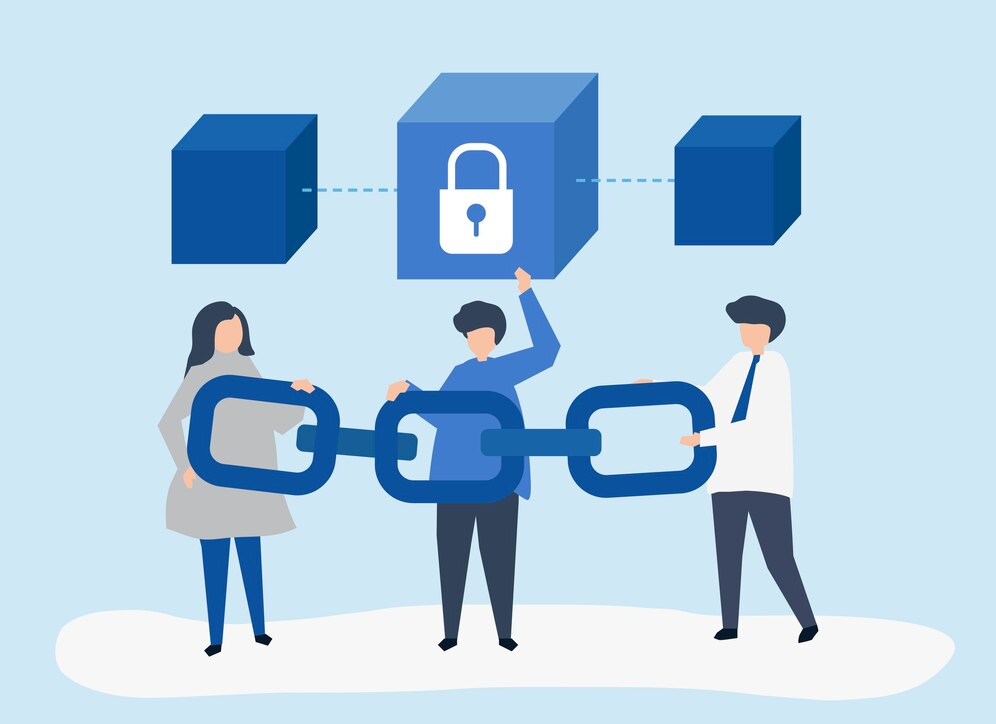Introduction
The use of blockchain technology is transforming how enterprises handle their data’s security and integrity in Software as a Service (SaaS) platforms. Blockchain’s special qualities like increased security, non-changeable, and dispersion are becoming a breakthrough in the SaaS market. This connectivity has become important during the period when the number of cyberattacks and data breaches continues increasing, and many companies are looking for reliable ways of securing sensitive data.
The Role of Blockchain in SaaS Security
Blockchain technology has become a potent instrument for improving SaaS platform security and integrity. It is the perfect answer to some of the most critical security issues with the SaaS model because it can offer a transparent, safe, and unchangeable system. You can visit website if you are not sure or just want to know more and get advice from professionals.
Immutable Data Records: Preventing Unauthorized Access and Manipulation
Generating immutable data records is one of the most significant benefits of incorporating blockchain into SaaS. Because blockchain records data in encrypted, chained blocks, changing or removing data without permission is nearly complicated. Each block in the chain includes a timestamp, transaction data, and a cryptographic hash of the block before it in order to create an irreversible and permanent record of all transactions.
SaaS platforms that handle private information, including financial records, personal ID numbers, or trade secrets, need to be able to preserve this immutability. Ensuring the permanence of data on the blockchain prevents unauthorized access and alteration. This feature improves data integrity and gives users peace of mind by protecting their personal information.
Decentralized Identity Management: Safeguarding User Information
Conventional password-based login mechanisms are susceptible to intrusions and cyberattacks. Identity management based on blockchain provides a more convenient and safe option. On the blockchain, users can save their digital identities and login information, enabling password-free access to approved apps.
There are various advantages to this decentralized method:
● Reduced security risks. Removes the single point of failure associated with centralized password systems, making it more difficult for hackers to access user data.
● Enhanced user privacy. Users can decide which personal information to share with each application and have more control over it.
● Enhanced user experience. It removes the hassle of having to remember numerous passwords and streamlines the login procedure.
Blockchain has the potential to drastically change the SaaS security environment by utilizing these unique qualities. It offers a solid and transparent basis on which to construct SaaS applications that are safe, dependable, and dependable and that consumers can rely on with confidence.
Smart Contracts and SaaS Transactions
Beyond just protecting data, the incorporation of blockchain technology into SaaS platforms completely transforms how transactions occur on them. One of the most inventive uses of blockchain technology, smart contracts, is essential to this change.
Secure and Transparent Transactions: The Blockchain Advantage
A code that contains the conditions of an agreement directly is what makes a smart contract self-executing. They are considered to be more transparent and secure in SaaS systems than handling transactions. An example is in the case of invoicing, where smart contracts in subscription-based Software as a Service models eliminate the role of the middlemen and reduce fraudulence possibilities.
The autonomous, irreversible enforcement, execution, and verification of transactions is what makes smart contracts special. Transactions are irreversible once they are registered on the blockchain, guaranteeing openness and confidence between participants. SaaS firms, who frequently handle sensitive customer data and need strict agreements and payment terms, will especially benefit from this capability.
The Future Potential of Blockchain-Based SaaS Solutions
The incorporation of blockchain technology into the SaaS market has enormous future possibilities. This gives us an idea of what to anticipate:
● Increased data security and privacy. Blockchain will be essential to safeguarding user privacy and securing data in SaaS apps, increasing consumer confidence and trust.
● Improved compatibility. Blockchain interoperability will facilitate smooth data transfer across various SaaS platforms, fostering workflows that are more coordinated and connected.
● Empowering creators and artists. Blockchain-powered platforms will give artists and content producers new ways to directly and openly monetize their creations, doing away with the need for middlemen.
● Emergence of decentralized SaaS marketplaces. Through decentralized marketplaces powered by blockchain technology, users will be able to search for, access, and pay for SaaS programs directly without relying on centralized platforms.
Beyond Security: The Broader Impact of Blockchain in SaaS
Blockchain has significantly more effects on SaaS than just security and transparency. Lastly, it can change the way people use and interact with software. Blockchain encourages trust, creates a decentralized environment, and empowers users to control their data. Artists get fair revenues, and corporations operate effectively and transparently.
As the technology develops and usage becomes more widespread, we will witness some groundbreaking blockchain applications within the SaaS environment, which will usher in a new era of a customer-driven, transparent, and secure environment for writing and delivering software.
Conclusion
Blockchain technology can completely change the SaaS industry by improving user trust, security, and transparency. Businesses may create dependable and safe SaaS apps that empower users and open up new avenues for growth and innovation by utilizing their unique characteristics.
Although there are still issues with scalability and legal frameworks, blockchain technology has a lot of potential applications in SaaS. We should anticipate that the technology's revolutionary influence will redefine software as a service in the future as it develops and matures.
